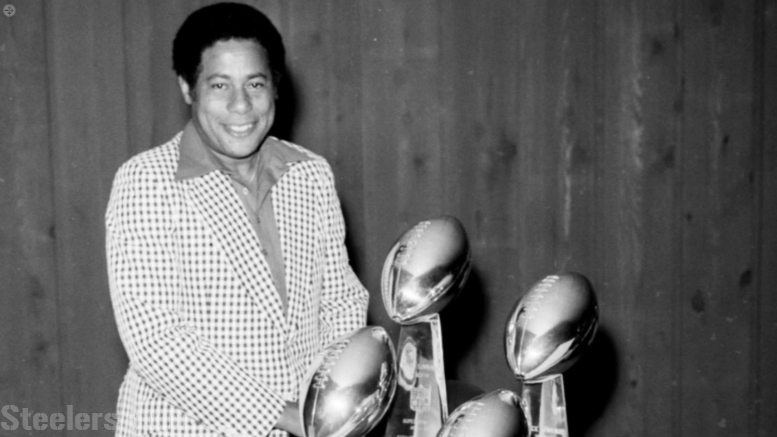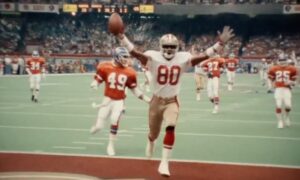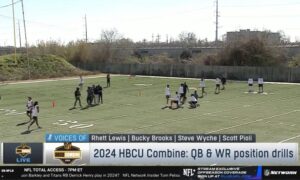It is my hope that it’s becoming increasingly difficult to find a Pittsburgh Steelers fan who’s been around the block a time or two who does not fully recognize the fact that Bill Nunn should be member of the Pro Football Hall of Fame for the immense role that he played in populating the franchises rosters of the 1970s with premium talent that other teams had overlooked.
That this year’s Centennial class of the Hall of Fame, which included the enshrinement of 15 former players, coaches, and contributors, came and went without Nunn being awarded his overdue bust—already too late for him to see it himself, even too late for his son, the eponymously-named actor Bill Nunn, who starred in Spike Lee’s Do the Right Thing—is a damn shame, and probably the impetus behind Rick Gosselin’s latest piece for the Talk of Fame Network hosted by Sports Illustrated.
He argues just that, that Nunn’s enshrinement is long overdue, and he comes with quotes. The lead quote comes from none other than one of his own diamonds in the rough, Mel Blount, a cornerback so great that they had to change the rules—and he continued to dominate anyway.
Drafted in the third round in 1970 out of Southern University in just Nunn’s second year as a full-time scout for the organization, Blount went on to have a dominant career that landed him in the Hall of Fame five years after he retired.
“You cannot write the history of the Pittsburgh Steelers without Bill Nunn”, he told Gosselin of Nunn, whom he had gotten the opportunity to see work firsthand plenty. “When you look at the Steelers in the 1970s, none of that would have happened without Bill Nunn”.
Some of Pittsburgh’s best players from that era, and many who played critical supporting roles, were athletes blowing things up at Historically Black Colleges and Universities (HBCUs), which were critically underscouted by almost all NFL teams at the time. Even elite players like Roosevelt Brown and Deacon Jones were unheralded late-round picks, and the teams who drafted them probably never saw them play first-hand.
The bulk of the Steelers’ Steel Curtain in the first phase of their championships consisted of players from HBCUs, short of Joe Greene. L.C. Greenwood, Dwight White, and Ernie Holmes all came from schools like Arkansas A&M and East Texas State. Donnie Shell came out of Javon Hargrave’s alma mater, South Carolina State. John Stallworth? Tennessee State.
Of course he didn’t only scout the HBCUs. He was instrumental, along with Art Rooney, Jr., and others, in assembling that extremely talented roster. But there’s a reason those who worked with him talk of his legacy so. It was earned. On the reputations of those he stuck his neck out for when nobody else would give them the time of day.








